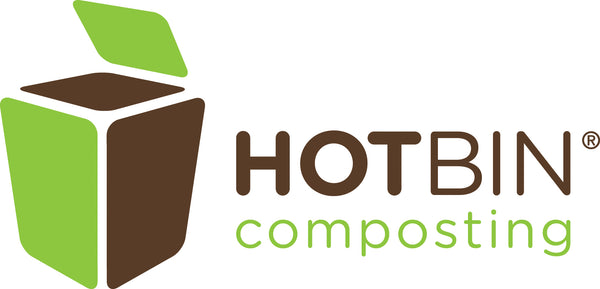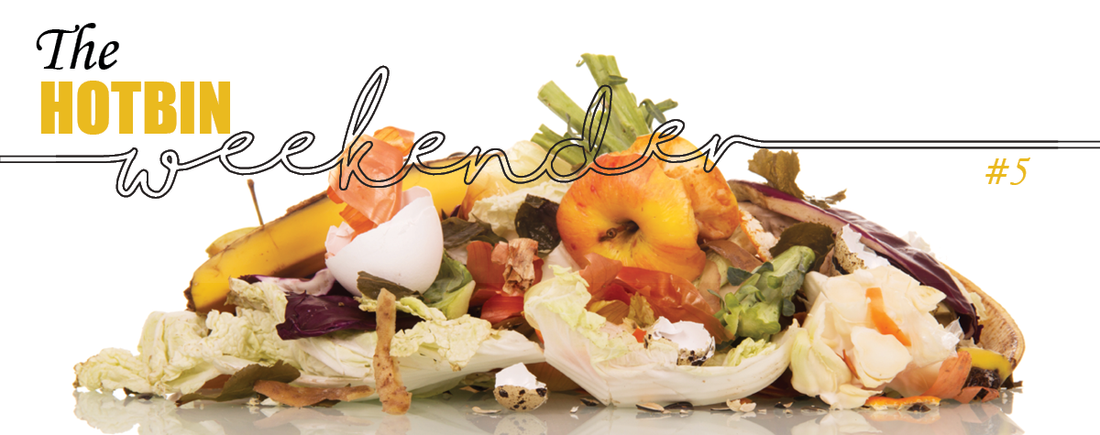Put Your Food Scraps to Good Use: Compost at Home
We can compost at home more than we think, depending on the composting device and method (cold or hot) chosen.
The US Academy of Nutrition and Dietetics, promotes composting at home. "Once you choose the right composting device or method, all you need to do is to combine the right balance of ingredients and produce compost".
Composting piles are considered living eco-systems needing the right balance of ingredients to function. Composting devices come with instructions that list food groups, portions and other operating instructions to follow. Click to access our HOTBIN start-up manual as an example.
Composting piles should smell earthy - HOTBIN comes with a carbon filter that minimizes composting related odors. However, if you are using a different composting device, you can balance odors by adding more browns than greens. Also important, is to have a good drainage, just as a house plant.
Did You Know? Food-waste left to rot is worse than plastics for the environment.
Different from plastics, food-waste gets little attention to discussions on climate crisis. However, although plastic-waste creates unnecessary CO2 emissions and is a threat to our planet Eco-systems; food-waste that is left to rot in landfills, produce huge amounts of methane emissions, posing an even greater threat to the planet.
The process - as food begins to rot in landfills, bacteria break it down (w/o air or anaerobically) and release methane emissions. Once methane is released into the air, it settles in the atmosphere, trapping heat and contributing to climate change.
According to the US Environmental Protection Agency (EPA), one tonne of methane does approximately 25 times more damage to the environment over a 100 year period, than one tonne of carbon dioxide. Methane accounts for about 20% of global emissions.
Why should you buy a Garden Composter? Chicago Tribune 10/21
If you're not 100% sold on the idea yet, here are a few reasons why you should own a garden composter:
- Making your own compost is cheaper than buying it.
- Composting is environmentally friendly, since you're recycling your own garden waste and certain kitchen scraps rather than sending it to a landfill.
- Using compost reduces the need to use controversial chemical fertilizers.
- When you compost your garden waste, you don't end up with overflowing trashcans come garbage day.
- Compost generally improves soil quality and reduces toxins.
There are two main types: Bins and Tumblers
Combines Pros and Cons are as follows:
- Tumblers - Tumblers sit on frame, you can compost without using a fork, hard to reach by unwanted animals as they are raised. Just as bins, they can be pricey and can be hard to turn when full (a most do requirement).
- Bins - Unless raised with a wood-pallet, plinth or bricks, it sits directly on the floor and if they do not come with a drainage system, composting drainage can leak to the floor (easy to clean). Price varies by brand.
HOTBIN Construction Quality
What makes EPP (Expanded Polypropylene) so cool?
The HOTBIN is made of Expanded Polypropylene (EPP), NOT from Styrofoam. EPP is a high-tech material that has been steadily gaining global recognition as a material of choice for high-value, safety-critical automotive and aerospace applications. Its popularity comes from EPP's properties which include: Outstanding energy absorption and impact resistance. High thermal resistance. Material remains stable in a wide range of temperatures from -40 to +60 °С (-40 to 140 °F). Click to read the complete article.

